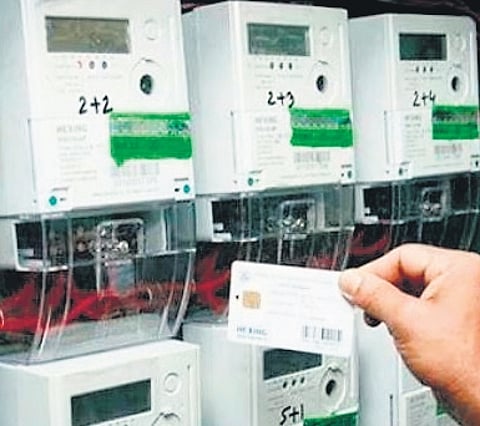

KOCHI: The crisis in the power sector, triggered by a spike in consumption during peak hours, has compelled the state government to reconsider its decision to reject the central scheme for revamping the sector. It will also seriously re-evaluate installing smart meters. A meeting of KSEB employees, convened by Electricity Minister K Krishnankutty on Wednesday discussed a slew of measures, including the central scheme, to overcome the crisis.
The state government and the CPM had opposed the Revamped Distribution Sector Scheme (RDSS) alleging that it will shift power distribution into the hands of corporates and impose a huge burden on the common man. The state government had initially drawn up the plan to install 37 lakh smart meters but trade unions, including CITU, opposed the move. As per the proposal, the contracting company must install and maintain the meters at its own expense and recover the amount from consumers.
“The employees have extended their whole-hearted support and put forward many suggestions to improve power generation and to manage the rising demand during peak hours. One of the suggestions was to expedite hydel projects which are in the final stages. The commissioning of these projects will help to increase generation and reduce stress during peak hours. Another suggestion was to start pumped storage generation in the joint sector. I have sought suggestions from employees on extending the peak hour and implementation of the smart meter project,” Krishnankutty told TNIE.
A section of consumers have installed solar units connected to the grid. KSEB purchases power generated by solar units during the daytime at the rate of Rs 2.50 per unit. But these consumers have installed more air conditioners at home which increases the burden of KSEB during peak hours. These consumers are using power lavishly during night as they get it for free. The peak hour which was from 6.30 pm to 9.30 pm, now starts at 9.30 pm and extends beyond midnight. Installation of smart meters will help implement differential pricing, which means the KSEB can charge a special rate for power consumed during peak hours. The KSEB is purchasing power for peak hours at the rate of Rs 8.50 to Rs 15 per unit, the minister said.
“The government has not opposed the implementation of the smart meter scheme. We argued that it should be implemented in capital expenditure (capex) mode instead of total expenditure (totex) mode, which brings in an intermediary. Under the pumped storage scheme, we will use the solar power generated during day time for pumping water released after generation from hydel projects back to the reservoir. This will help increase power generation during peak hours,” said a senior official.